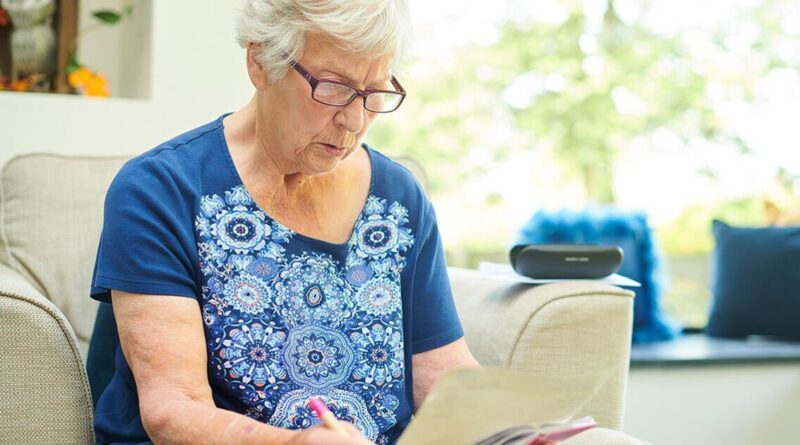Health issues that could qualify you for £441 a month from the DWP | Retirement | Finance
Pensioners with certain health conditions could be entitled to receive up to £441 a month in cash support. These disabilities, long-term illnesses, or mental or physical health issues may qualify people for Attendance Allowance from the Department for Work and Pensions (DWP).
Recent figures from the DWP show that nearly 1.7 million elderly people were benefiting from extra financial help through Attendance Allowance as of August 2024. The benefit is paid at two different rates, either £73.90 or £110.40 per week, equating to four-weekly payments of £295.60 or £441.60, respectively.
The amount of weekly payment depends on the level of care needed. According to DWP rules, those requiring “frequent help or constant supervision during the day, or supervision at night” are eligible for the lower rate of £73.90, while those who need “help or supervision throughout both day and night, or a medical professional has said you’re nearing the end of life” can claim the higher rate of £110.40.
Attendance Allowance is designed to help those of State Pension age manage additional daily costs due to their condition, enabling them to maintain independence at home for an extended period.
As reported by the Daily Record, data also shows the breakdown of claimants by health condition, with 563,746 (36%) having been awarded Attendance Allowance for five years or more.
Attendance Allowance serves as a crucial support for people with disabilities, long-term illnesses, or mental or physical health conditions. The most common condition claimed for is arthritis, providing assistance to 483,376 people across Great Britain.
DWP data reveals that around 47% of people claiming Attendance Allowance for arthritis receive an award lasting five years or longer.
The following statistics represent the number of claimants per condition and the percentage receiving payments for five years or more. It’s worth noting that people with lifelong, degenerative conditions unlikely to change will typically receive a longer award, while shorter awards are issued where an improvement is expected.
The figure below represents all claimants up until the end of August 2024.
- Arthritis – 47%
- Spondylosis – 48%
- Back Pain – Other / Precise Diagnosis not Specified – 43%
- Disease Of The Muscles, Bones or Joints – 40%
- Trauma to Limbs – 36%
- Visual Disorders and Diseases – 41%
- Hearing Disorders – 42%
- Heart Disease – 50%
- Respiratory Disorders and Diseases – 33%
- Asthma – 47%
- Cystic Fibrosis – 27%
- Cerebrovascular Disease – 42%
- Peripheral vascular Disease – 41%
- Epilepsy – 44%
- Neurological Diseases – 50%
- Multiple Sclerosis – 52%
- Parkinsons – 30%
- Motor Neurone Disease – 32%
- Chronic Pain Syndromes – 39%
- Diabetes Mellitus – 39%
- Metabolic Disease – 38%
- Traumatic Paraplegia – 54%
- Major Trauma Other than Traumatic/Paraplegia – 45%
- Learning Difficulties – 48%
- Psychosis – 44%
- Psychoneurosis – 38%
- Personality Disorder – 48%
- Dementia – 20%
- Behavioural Disorder – 28%
- Alcohol and Drug Abuse – 37%
- Hyperkinetic Syndrome – 27%
- Renal Disorders – 26%
- Inflammatory Bowel Disease – 42%
- Bowel and Stomach Disease – 37%
- Blood Disorders – 39%
- Haemophilia – 39%
- Multi System Disorders – 41%
- Multiple Allergy Syndrome – 44%
- Skin Disease – 37%
- Malignant Disease – 35%
- Haemodialysis – 22%
- Frailty – 100%
- AIDS – 47%
- Coronavirus covid-19 – 1%
- Viral disease – precise diagnosis not specified – 13%
- Tuberculosis – 53%
- Bacterial disease – precise diagnosis not specified – 43%
- Cognitive disorder (other) – 22%
What is Attendance Allowance?
Attendance Allowance is a benefit designed to assist with additional costs if you have a physical or mental disability or illness that makes self-care challenging – it does not cater for mobility needs. It’s important to note that having a carer is not a prerequisite for making a claim.
You are encouraged to apply for Attendance Allowance if you have a disability or illness and require assistance or supervision throughout the day or at times during the night – even if you’re not currently receiving this help.
This could encompass:
- Assistance with personal care – such as dressing, eating or drinking, getting in and out of bed, bathing or showering, and using the toilet
- Help to ensure your safety
If you find personal tasks challenging, such as if they take a long time, cause discomfort or require physical support like leaning on a chair, you should consider applying for Attendance Allowance. It’s not just for those with a physical disability or illness.
You should also apply if you need help or supervision throughout the day or night and have:.
- A mental health condition
- Learning difficulties
- A sensory condition – if you are deaf or visually impaired
You could be eligible for either £73.90 (lower rate) or £110.40 (higher rate) per week.
The money can be used however you see fit and it could help in preserving your independence at home for a longer period.
Applying for Attendance Allowance might seem intimidating due to the extensive claim form. However, help is readily available from Citizens Advice and Independent Age.
Detailed instructions on how to get the application form by post or phone can be found on the GOV.UK website.





